“For as in absolute governments the king is law, so in free countries the law ought to be king; and there ought to be no other.”
Thomas Paine Common Sense, 1776
“Rightly constituted laws should be the final sovereign; and personal rule, whether it be exercised by a single person or a body of persons, should be sovereign only in those matters on which law is unable, owing to the difficulty of framing general rules for all contingencies, to make an exact pronouncement.”
Aristotle Politics, 4th century B.C.
Both of these articulations of the rule of law are referenced in the late Justice Antonin Scalia’s classic February 1989 Oliver Wendell Holmes Jr. lecture at Harvard University, and they are sorely needed today. On Saturday, almost precisely 36 years after Scalia’s speech, President Donald Trump offered up a quotation of his own: “He who saves his Country does not violate any Law.”
Apparently originating with Napoleon Bonaparte, Trump here is brashly embracing the idea of personalistic rule. Just weeks into his second administration, the returning president has made clear that he believes rule-following is a sucker’s game in a town where the rules have been set by corrupted interests. With truly astonishing frankness, he is willing to raise the question of whether law is unable to offer the American people the government they deserve, making a resort to personal rule strictly necessary. If America’s basic commitment to the rule of law is to survive Trump’s challenge to it, it is going to need defenders in many quarters, some of which would be quite unexpected sources of “resistance.”
To understand why Trump believes he can get away with expressing such contempt for our rule of law tradition, we must start by admitting that presidents of both parties have been eroding it for quite a while. The George W. Bush administration gave us “extraordinary rendition” in response to the horrific September 11 attacks, and a debate raged during his presidency over whether the president was actually bound by the statutes he signed into law. Barack Obama became the “pen and phone” president once Republicans secured control of the House of Representatives, refashioning immigration law on the basis of his administration’s ability to decline prosecution and undertaking an ambitious climate change program on the basis of decades-old law. Trump forced a government shutdown during his first term when Congress refused to allocate funding for his border wall, only to end that standoff because he decided instead to declare a national emergency that allowed him to reprogram defense and homeland security funds. Joe Biden didn’t like the legislative prospects for student loan relief, an eviction moratorium, or a vaccine mandate, so he devised plans that went around Congress.
As executive power expands, Americans’ faith in the lawmaking process as the pillar of a free republic has been ebbing—with disastrous consequences. Take, for example, the national debt. Trump and his allies have been sounding the alarm about America’s out-of-control annual deficits—indeed, this is the major justification for the new administration’s aggressive, legally dubious firings and apparent unilateral decisions to end various programs established by law—yet their supposed concern about the debt has not resulted in any attempts to seriously tackle our fiscal woes through the exercise of Congress’ power of the purse. The congressional budget process, put in place a half century ago with the aim of enabling balanced budgets, has become a ridiculous joke used only to access reconciliation bills that push aside the Senate’s filibuster (and often enable greater deficit spending, even if accounting gimmicks paper over this reality). The idea that the budget committees should shoulder the responsibility of charting an actual path toward fiscal responsibility has become a quaint relic of a more innocent time, and appropriators, who used to pride themselves on being the real power brokers in Washington, have mostly resigned themselves to doing their best to maintain the status quo.
The situation along the southern border is another crisis demanding congressional action, but here too, executive action has reigned supreme. The Trump administration’s use of Title 42 expulsions during the COVID-19 pandemic effectively shut down the border for the latter half of 2020, and Biden continued this policy for his first two years in office before seeking to terminate it. Republican lawmakers furiously denounced the Biden administration for trying to end the measure—warning (correctly) that it would cause a flood of unchecked border crossings—but refused to legislate on the issue, even after a bipartisan group of senators released a framework and Biden became desperate for a deal ahead of the 2024 election. For the GOP, giving political comfort to their opponents in an election year proved to be too much of an ask. Whether Republican control of both chambers of Congress in 2025 will lead to legislative progress on the issue or lawmakers will simply cheer on whatever solutions Trump may fashion out of whole cloth remains to be seen.
As the art of legislating falls into disrepair, is there any way to slow the acceleration of executive aggrandizement that has effectively put us into the realm of personalistic government rather than a system in which publicly debated and contested laws are sovereign? James Madison famously predicted that our constitutional separation of powers would be sustained by “ambition counteracting ambition” rather than “parchment barriers,” but congressional ambitions on behalf of legislative prerogatives are hard to discern at present.
Ironically, the most likely sources of effective “resistance” to the second Trump administration’s attempts to transcend the law—at least in the short term—come from several judicial doctrines that have matured over the past decade, and which progressives have bitterly denounced as opportunistic power grabs by conservative judges: the major questions doctrine, and the end of judicial deference to executive branch interpretations.
The Supreme Court beat back several of Biden’s most aggressive unilateral executive actions on the basis of the major questions doctrine, which was anticipated by Scalia’s pronouncement, in a 2001 concurrence, that Congress does not “hide elephants in mouseholes.” To have adequate legal authority to launch a major new initiative, the executive branch will now need to be able to point to a clear grant of authority from Congress; open-ended language that can be plausibly twisted into service will not be enough. Meanwhile, the Supreme Court also reversed the decades-old precedent of Chevron deference, under which judges were supposed to defer to all agency interpretations that seemed reasonably consistent with the statutory language. In their decision in Loper Bright v. Raimondo last year, the justices made clear they would like to see the executive branch govern by the actual content of the law, hopefully curtailing the typical pattern of policies flipping 180 degrees depending on who is in the White House.
One of the most important relationships to watch during the second Trump administration will be between the MAGA enthusiasts who are thrilled by Trump’s refusal to be hemmed in by inconvenient laws and the Federalist Society conservatives who prize our constitutional structure and the rule of law. The first Trump administration made enough compromises with the latter group to keep it largely satisfied, at least until after the 2020 election. The Federalist Society was a dominant influence in Trump’s selection of judges in his first term, but there are now plenty of Trump supporters eager to suggest that this alliance was a terrible strategic mistake. Trump-appointed judges are going to play a pivotal role in determining whether Trump is allowed to leave the law behind.
The most spectacular fights are likely to be those around Congress’ power of the purse, which is supposed to be the ultimate safeguard of republican government—the legislature’s trump card. Trump apparently wants to push for the power to impound congressional spending, such that Congress would only set ceilings for spending items rather than getting to dictate specific amounts. If such a power were affirmed, the president would effectively get to rewrite every legislative bargain after the fact, and the art of coalition-building in service of those bargains would be seriously degraded.
Even so, Congress would retain the power not to fund something—but given the way Trump approached the border wall funding controversy in 2019, that more fundamental check seems likely to be tested as well. What if GOP lawmakers simply cannot manage to pass any significant part of Trump’s legislative priorities on a party-line vote—a real possibility given the party’s narrow margins in both chambers? In a healthy system, the administration would simply admit the need to go back to the drawing board and figure out how to build a winning coalition, including a significant number of Democrats.
But the way Trump and many of his allies have talked in recent weeks suggests that they might simply insist that their mandate from the American people entitles them to do what they see fit, such that any compromise with the opposition would be an unacceptable failure to “save the country.” In that case, legislative irrelevance would become a permanent precedent whenever a president is willing to allege existential stakes. We would have something much closer to plebiscitarian dictatorship than republican rule of law. We are not there yet, but with a president who now openly muses about the virtues of such a regime shift, it is getting easier to imagine.

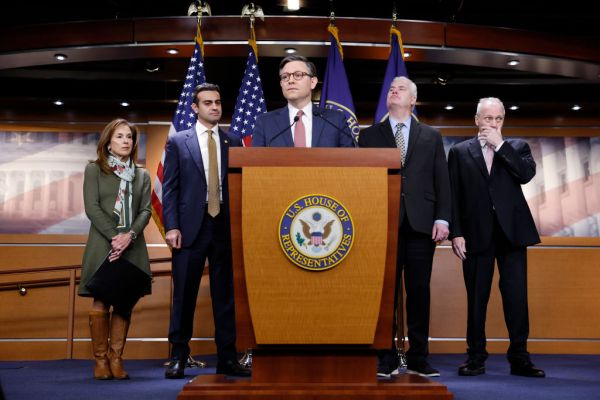
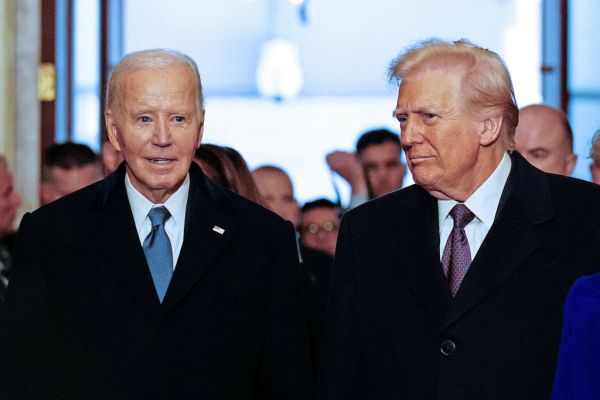
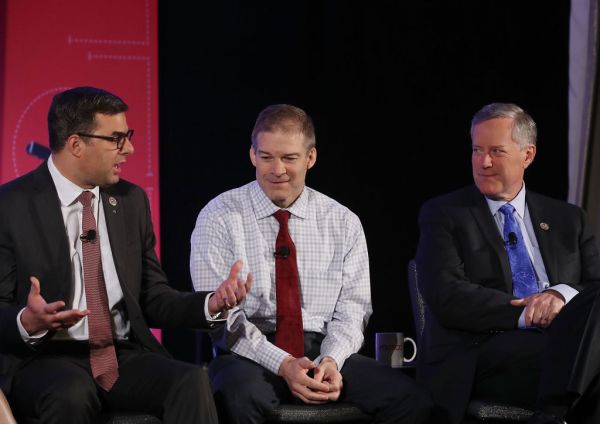

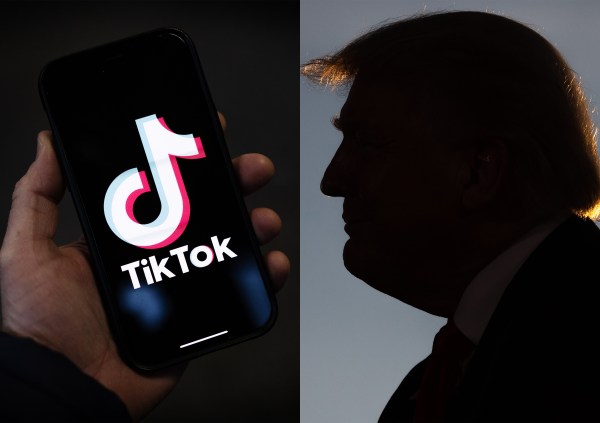

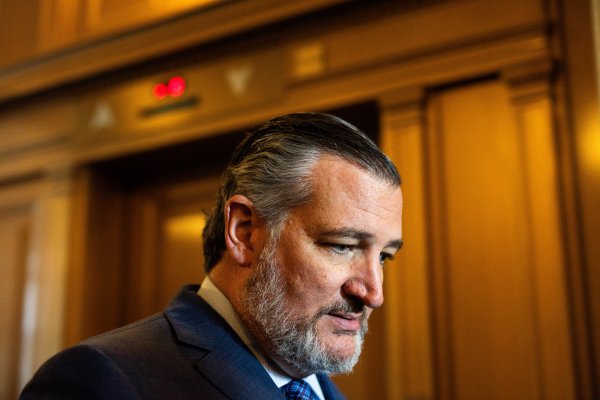

Please note that we at The Dispatch hold ourselves, our work, and our commenters to a higher standard than other places on the internet. We welcome comments that foster genuine debate or discussion—including comments critical of us or our work—but responses that include ad hominem attacks on fellow Dispatch members or are intended to stoke fear and anger may be moderated.
With your membership, you only have the ability to comment on The Morning Dispatch articles. Consider upgrading to join the conversation everywhere.